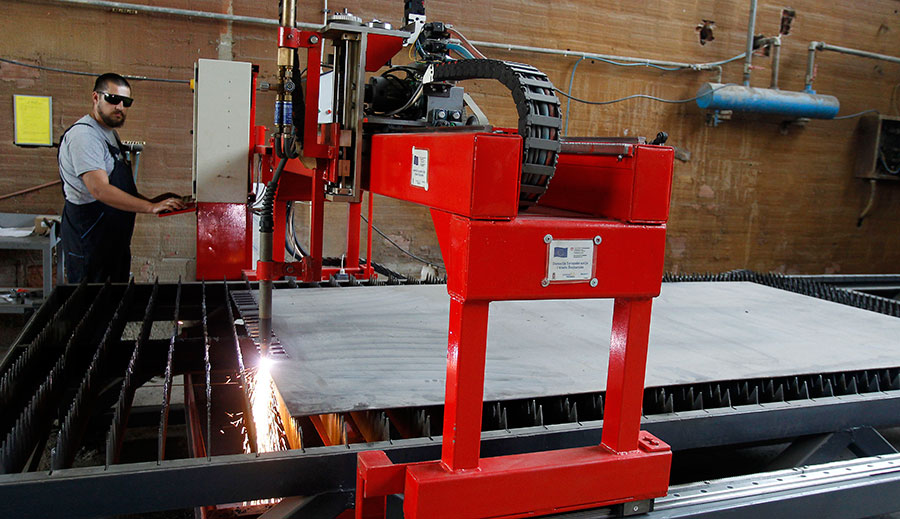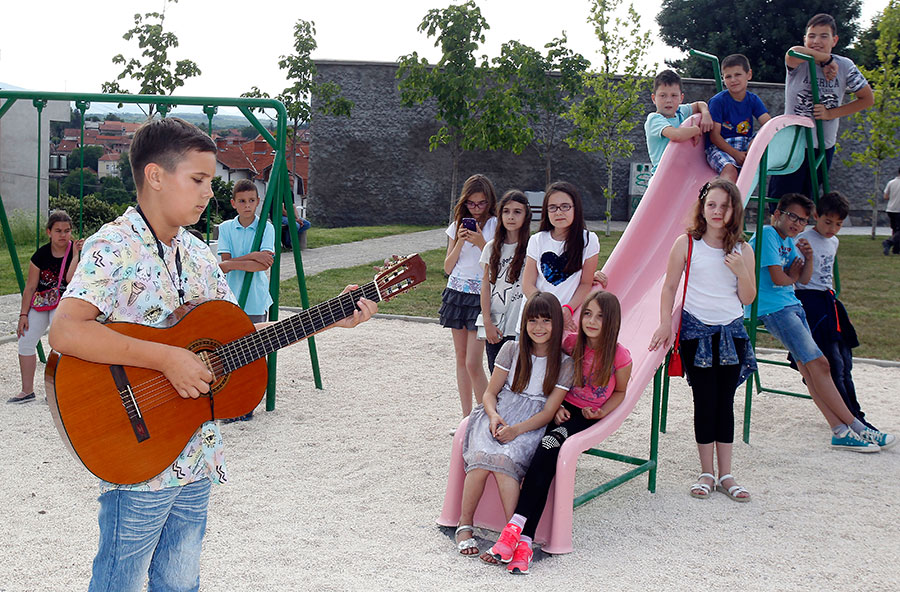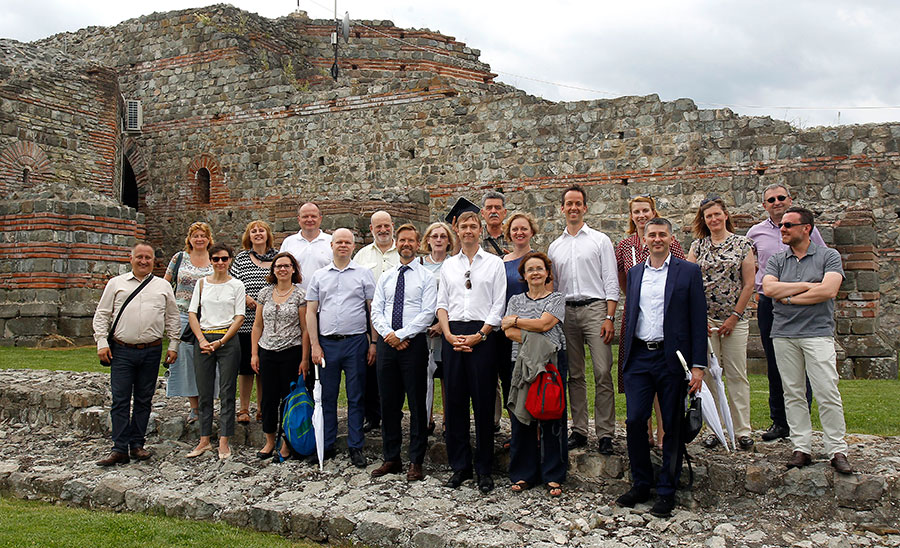The EU will continue to support social and economic development of South East Serbia in order to offer the young better opportunities for education and create favourable conditions to live and work in their communities, Oskar Benedikt, Deputy Head of EU Mission to Serbia, said in Knjazevac during the first day of the visit he paid together with deputy ambassadors of EU Member States to South East Serbia.
“SMEs are the backbone of EU economy, generating 85 per cent of jobs, which is why providing support for small business means investing in the future of the business community in Serbia as a whole,” Benedikt said during a visit to the company Kran Projekt which has obtained a modern metal processing machine worth EUR14,650 with support of the EU and the Swiss Government.
According to the management of Kran Projekt, the new computer numerical control (CNC) equipped machine has increased their productivity and production efficiency and made them more competitive in the market, while at the same time allowed them to hire three employees.
 This Knjazevac Company is among 17 other undertakings in South East and South West Serbia to have received donor assistance worth EUR253.880 within the European PROGRES programme with a view to boosting production and creating new jobs. In order to be eligible for assistance, the companies had to commit to undertaking socially responsible activities that would contribute to a wider community. Kran Projekt has thus supported holding of three workshops on the topic of environmental protection and funded the construction of a children’s playground which was officially inaugurated in the presence of EU Member States’ deputy heads of missions.
This Knjazevac Company is among 17 other undertakings in South East and South West Serbia to have received donor assistance worth EUR253.880 within the European PROGRES programme with a view to boosting production and creating new jobs. In order to be eligible for assistance, the companies had to commit to undertaking socially responsible activities that would contribute to a wider community. Kran Projekt has thus supported holding of three workshops on the topic of environmental protection and funded the construction of a children’s playground which was officially inaugurated in the presence of EU Member States’ deputy heads of missions.
“I hope this sets an example of good practice for other companies to follow as it shows that, when it comes to development, business and local community go hand in hand,” Benedikt said during the opening of the playground. He added that this was another example of cooperation and partnership at work given that Kran Projekt had, not only improved its business performance, but also created new jobs and a safe place for the youngest citizens of Knjazevac to play and learn how to protect the environment.
 “After several years of neglect, this space has finally found its purpose – a new playground for our children – thanks to involvement of the local self-government and the donation of Kran Projekt,” Milan Djokic the President of the Municipality said, showing his appreciation to the European Union for the support it provides to economic and infrastructure development of Knjazevac.
“After several years of neglect, this space has finally found its purpose – a new playground for our children – thanks to involvement of the local self-government and the donation of Kran Projekt,” Milan Djokic the President of the Municipality said, showing his appreciation to the European Union for the support it provides to economic and infrastructure development of Knjazevac.
“In workshops, pupils from three schools in Knjazevac learned more about the process of waste disposal and recycling. But above all, they learned that a healthy future begins with them,” said Ivan Svetozarevic of the NGO Green Zone which acted as the implementing partner in the project.
The delegation comprised of EU Member States’ deputy heads of missions also visited the imperial palace Felix Romuliana in Gamzigrad near Zajecar, a UNESCO World Heritage Site. The EU has allocated nearly EUR600,000 for the site through its HERA project – Sustainable Tourism Management of Adriatic HERitage – with a goal of equipping the multimedia centre with modern computer and holographic video equipment. Also, the three towers, which serve as showrooms and a space for hologram-based presentation of the Felix Romuliana at its peak, have also been reconstructed within the project. Furthermore, the EU financially supported the project “Roman Emperors and the Danube Wine Route” which includes Gamzigrad and Rajacke pimnice.
The European Union and the Government of Switzerland will support the activities of the European PROGRESS programme, which contributes to the sustainable development of the South and South West Serbia, with a total of EUR24.46 million. Approved projects will be aimed at strengthening local administration creating a favourable environment for the development of infrastructure and economy as well as improving the implementation of social inclusion and employment policy. The programme is implemented by the United Nations Office for Project Service (UNOPS).
The municipalities included in the programme are as follows: Novi Pazar, Ivanjica, Nova Varos, Priboj, Prijepolje, Raska, Sjenica and Tutin in South West Serbia, as well as Prokuplje, Blace, Zitoradja, Kursumlija, Leskovac, Bojnik, Vlasotince, Lebane, Medvedja, Crna Trava, Vranje, Bosilegrad, Bujanovac, Vladicin Han, Presevo, Surdulica, Trgoviste, Brus, Aleksinac, Gadzin Han, Doljevac, Merosina, Svrljig, Babusnica, Bela Palanka and Knjazevac in South East Serbia.




